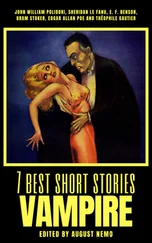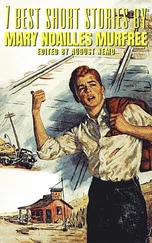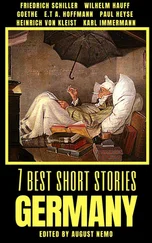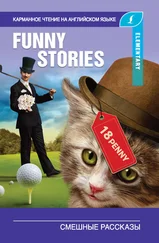The Elmore Bank had just put in a new safe and vault. Mr. Adams was very proud of it, and insisted on an inspection by everyone. The vault was a small one, but it had a new, patented door. It fastened with three solid steel bolts thrown simultaneously with a single handle, and had a time-lock. Mr. Adams beamingly explained its workings to Mr. Spencer, who showed a courteous but not too intelligent interest. The two children, May and Agatha, were delighted by the shining metal and funny clock and knobs.
While they were thus engaged Ben Price sauntered in and leaned on his elbow, looking casually inside between the railings. He told the teller that he didn’t want anything; he was just waiting for a man he knew.
Suddenly there was a scream or two from the women, and a commotion. Unperceived by the elders, May, the nine-year-old girl, in a spirit of play, had shut Agatha in the vault. She had then shot the bolts and turned the knob of the combination as she had seen Mr. Adams do.
The old banker sprang to the handle and tugged at it for a moment. “The door can’t be opened,” he groaned. “The clock hasn’t been wound nor the combination set.”
Agatha’s mother screamed again, hysterically.
“Hush!” said Mr. Adams, raising his trembling hand. “All be quite for a moment. Agatha!” he called as loudly as he could. “Listen to me.” During the following silence they could just hear the faint sound of the child wildly shrieking in the dark vault in a panic of terror.
“My precious darling!” wailed the mother. “She will die of fright! Open the door! Oh, break it open! Can’t you men do something?”
“There isn’t a man nearer than Little Rock who can open that door,” said Mr. Adams, in a shaky voice. “My God! Spencer, what shall we do? That child – she can’t stand it long in there. There isn’t enough air, and, besides, she’ll go into convulsions from fright.”
Agatha’s mother, frantic now, beat the door of the vault with her hands. Somebody wildly suggested dynamite. Annabel turned to Jimmy, her large eyes full of anguish, but not yet despairing. To a woman nothing seems quite impossible to the powers of the man she worships.
“Can’t you do something, Ralph – try , won’t you?”
He looked at her with a queer, soft smile on his lips and in his keen eyes.
“Annabel,” he said, “give me that rose you are wearing, will you?”
Hardly believing that she heard him aright, she unpinned the bud from the bosom of her dress, and placed it in his hand. Jimmy stuffed it into his vest-pocket, threw off his coat and pulled up his shirt-sleeves. With that act Ralph D. Spencer passed away and Jimmy Valentine took his place.
“Get away from the door, all of you,” he commanded, shortly.
He set his suit-case on the table, and opened it out flat. From that time on he seemed to be unconscious of the presence of anyone else. He laid out the shining, queer implements swiftly and orderly, whistling softly to himself as he always did when at work. In a deep silence and immovable, the others watched him as if under a spell.
In a minute Jimmy’s pet drill was biting smoothly into the steel door. In ten minutes – breaking his own burglarious record – he threw back the bolts and opened the door.
Agatha, almost collapsed, but safe, was gathered into her mother’s arms.
Jimmy Valentine put on his coat, and walked outside the railings towards the front door. As he went he thought he heard a far-away voice that he once knew call “Ralph!” But he never hesitated.
At the door a big man stood somewhat in his way.
“Hello, Ben!” said Jimmy, still with his strange smile. “Got around at last, have you? Well, let’s go. I don’t know that it makes much difference, now.”
And then Ben Price acted rather strangely.
“Guess you’re mistaken, Mr. Spencer,” he said. “Don’t believe I recognize you. Your buggy’s waiting for you, ain’t it?”
And Ben Price turned and strolled down the street.
The trouble began in Laredo [152]. It was the Llano Kid’s fault, for he should have confined his habit of manslaughter to Mexicans. But the Kid was past twenty; and to have only Mexicans to one’s credit at twenty is to blush unseen on the Rio Grande border.
It happened in old Justo Valdos’s gambling house. There was a poker game at which sat players who were not all friends, as happens often where men ride in from afar to shoot Folly as she gallops. There was a row over so small a matter as a pair of queens; and when the smoke had cleared away it was found that the Kid had committed an indiscretion, and his adversary had been guilty of a blunder. For, the unfortunate combatant, instead of being a Greaser, was a high-blooded youth from the cow ranches, of about the Kid’s own age and possessed of friends and champions. His blunder in missing the Kid’s right ear only a sixteenth of an inch when he pulled his gun did not lessen the indiscretion of the better marksman.
The Kid, not being equipped with a retinue, nor bountifully supplied with personal admirers and supporters – on account of a rather umbrageous reputation, even for the border – considered it not incompatible with his indisputable gameness to perform that judicious tractional act known as “pulling his freight.”
Quickly the avengers gathered and sought him. Three of them overtook him within a rod of the station. The Kid turned and showed his teeth in that brilliant but mirthless smile that usually preceded his deeds of insolence and violence, and his pursuers fell back without making it necessary for him even to reach for his weapon.
But in this affair the Kid had not felt the grim thirst for encounter that usually urged him on to battle. It had been a purely chance row, born of the cards and certain epithets impossible for a gentleman to brook that had passed between the two. The Kid had rather liked the slim, haughty, brown-faced young chap whom his bullet had cut off in the first pride of manhood. And now he wanted no more blood. He wanted to get away and have a good long sleep somewhere in the sun on the mesquit grass with his handkerchief over his face. Even a Mexican might have crossed his path in safety while he was in this mood.
The Kid openly boarded the north-bound passenger train that departed five minutes later. But at Webb, a few miles out, where it was flagged to take on a traveller, he abandoned that manner of escape. There were telegraph stations ahead; and the Kid looked askance at electricity and steam. Saddle and spur were his rocks of safety.
The man whom he had shot was a stranger to him. But the Kid knew that he was of the Coralitos outfit from Hidalgo [153]; and that the punchers from that ranch were more relentless and vengeful than Kentucky feudists when wrong or harm was done to one of them. So, with the wisdom that has characterized many great fighters, the Kid decided to pile up as many leagues as possible of chaparral and pear between himself and the retaliation of the Coralitos bunch.
Near the station was a store; and near the store, scattered among the mesquits and elms, stood the saddled horses of the customers. Most of them waited, half asleep, with sagging limbs and drooping heads. But one, a long-legged roan with a curved neck, snorted and pawed the turf. Him the Kid mounted, gripped with his knees, and slapped gently with the owner’s own quirt.
If the slaying of the temerarious card-player had cast a cloud over the Kid’s standing as a good and true citizen, this last act of his veiled his figure in the darkest shadows of disrepute. On the Rio Grande border if you take a man’s life you sometimes take trash; but if you take his horse, you take a thing the loss of which renders him poor, indeed, and which enriches you not – if you are caught. For the Kid there was no turning back now.
Читать дальше
Конец ознакомительного отрывка
Купить книгу
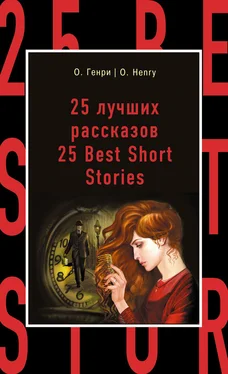
![Коллектив авторов - Best Short Stories [С англо-русским словарем]](/books/26635/kollektiv-avtorov-best-short-stories-s-anglo-thumb.webp)


